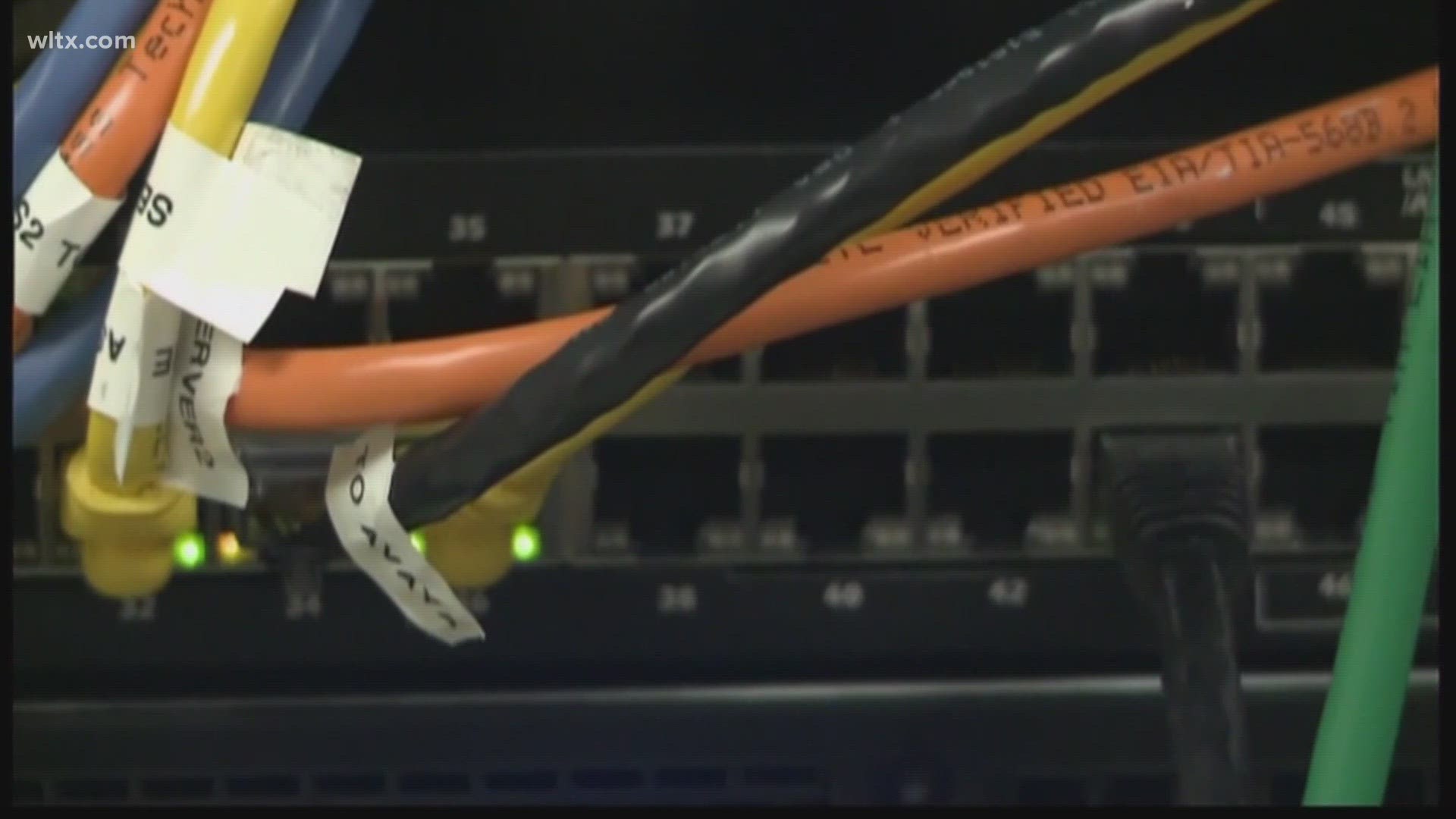COLUMBIA, S.C. — In the debate over South Carolina's growing energy needs, a focal point has been the discussion of data centers.
Data centers are typically large, windowless buildings filled with rows of computer servers. They help run technologies like artificial intelligence and 5G video streaming.
"Everything that's in the cloud has to be stored somewhere," explained Ford Graham, a consultant with McGuireWoods, a legal and public affairs firm.
He's helped site several data centers in South Carolina.
"Data centers at the moment are looking across the country at opportunities to build new facilities," Graham said. "South Carolina is obviously part of that and is seeing a lot of interest."
South Carolina has at least nine data centers already, with four more on the way. But with all the high tech comes a high need for energy. Nationally, 2,700 data centers consumed 4% of the total electricity in the U.S. in 2022. It's a number that's projected to rise to 6% by 2026, according to the International Energy Agency.
"These are power hogs, they they use a lot of power," said Paul Sagona, the Executive Director of Research Computing at the University of South Carolina.
"I think it's very important, you know, to plan these things out effectively. and to plan these out from the beginning, too, make sure you're doing this in the most efficient way possible," Sagona said.
Graham and Sagona agreed that data centers alone aren't responsible for South Carolina's energy crisis.
"It's one of the top states for inbound migration from another state," Graham said. "Obviously, they've been very successful in terms of in recruiting industrial companies. and some of those industrial companies have always been shifting towards more and more automation. automation is obviously going to use more power."
Graham said these centers produce about 30 to 50 high-paying jobs and that the impact on roads and schools is minimal.
"They tend to be a ton of revenue for the local community, you know, and whether that be an urban setting or a rural setting, helps with property taxes quite a bit," Graham said.
The South Carolina House attempted to block reduced electric rate deals for these centers, but it never made it through the Senate.

